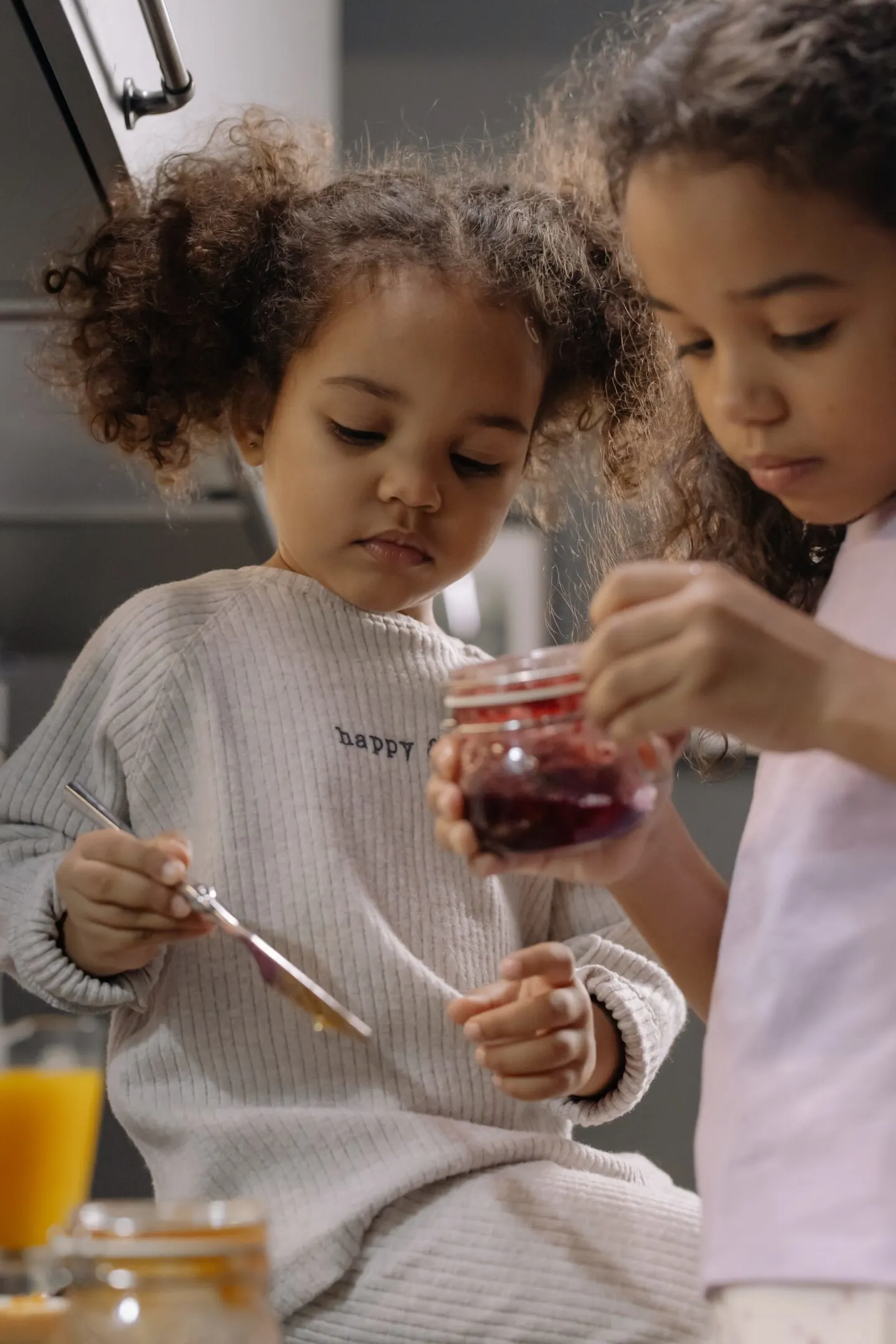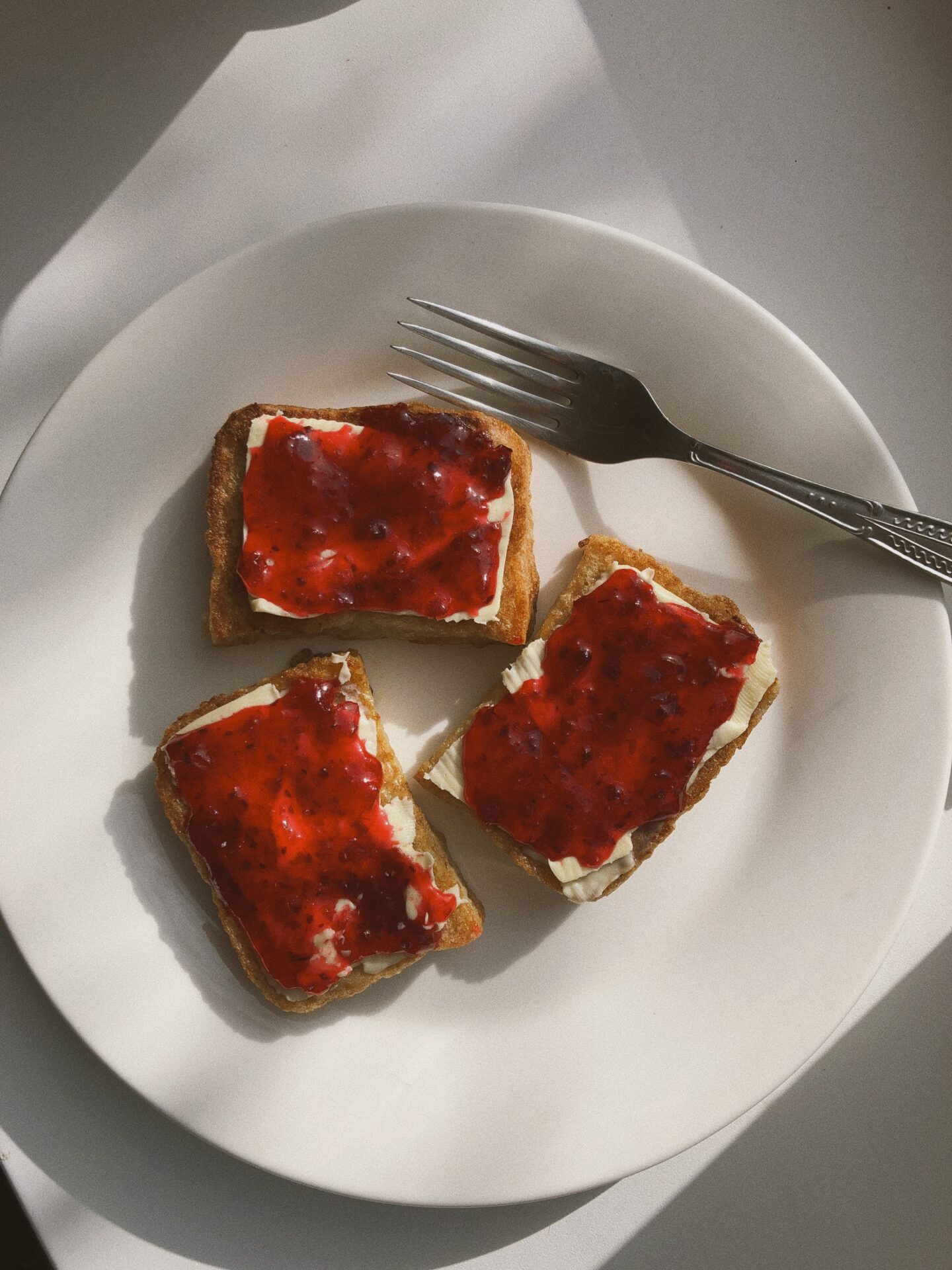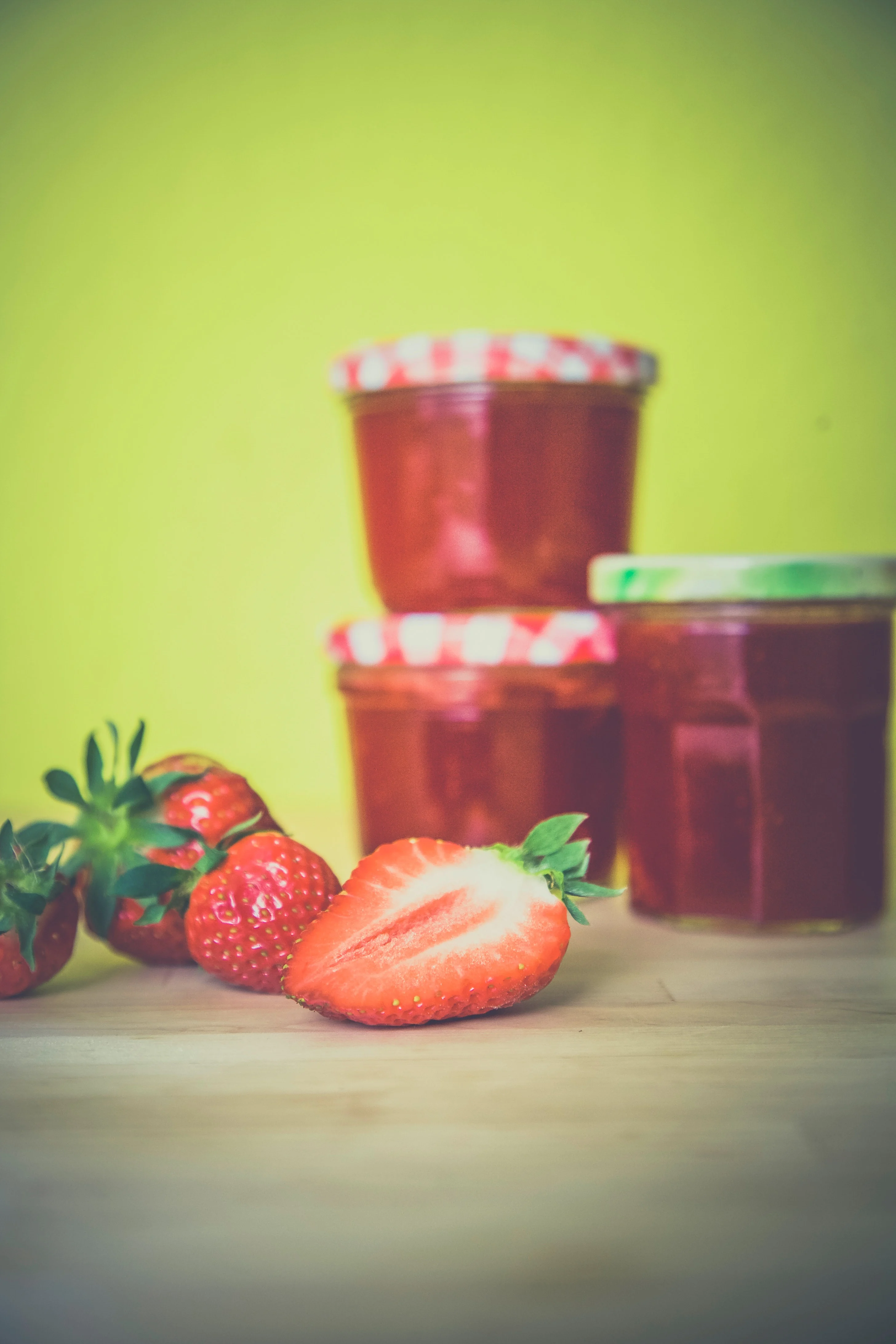A question parents often ask at the start of a child’s baby-led weaning journey is “Can babies have jam?”. Whilst jam is generally considered safe to offer your baby from about 6 months, the NHS advise that it’s best to avoid giving sugary foods to babies and young children.
Therefore, although jam is a safe food choice, it’s not recommended as a first food due to its high sugar content (around 60% sugar). However, with that being said, if you do want to give your child jam, it’s best to do it very occasionally and offer it sparingly – do not give it to your baby more than once a day.

Why you should avoid giving jam to babies.
Although it is considered a ‘safe’ food, jam can cause some serious issues and wreak havoc with your baby’s lifestyle and development. This is because jam has such a high sugar content.
Sugary foods can cause more harm than good when added to your baby’s diet, therefore it’s imperative that you understand why too much sugar can be detrimental to your baby’s health. When considering ‘can babies have jam’? think about the following points:
- Jam and sugary foods can cause weight gain in babies
- Jam and other high sugar-content foods can make babies feel full up more quickly
- Sugary foods such as jam contribute to tooth decay
- Jam and other sugary foods can make your baby develop a sweet tooth that puts them off trying new, unsweetened foods
Let’s look at each point in turn and find out why you should avoid giving jam to babies.

Jam and sugary foods can cause weight gain in babies
Can babies have jam and other sugary foods? Well, technically yes. However, feeding your baby foods that contain a high sugar percentage can lead to weight gain and childhood obesity. Rapid weight gain and obesity can cause preventable health issues in children, such as high blood pressure, elevated cholesterol, and even type 2 diabetes.
Moreover, having an overweight or obese child puts additional strain on developing bones and joints, which could cause discomfort and pain later on in life. At the far end of the spectrum, obesity has even been linked to some forms of cancer, therefore it’s vital that you keep a close eye on your baby’s sugar intake.
Jam and other high sugar-content foods can make babies feel full up more quickly
Another thing to remember when asking yourself ‘can babies have jam?’ is that foods that contain a high sugar percentage will make children feel full up more quickly.
This can cause issues as too much sugar will make your baby feel full up, leading them to go without the necessary nutrients that they need from the other food group.
Due to this, it’s best to minimise the amount of jam or other sugary substances and only offer it on rare occasions; this will help to ensure that your baby is still managing to eat a varied, healthy diet that supports their development and growth.

Sugary foods such as jam contribute to tooth decay
We all know that sugary foods are one of the leading causes of tooth decay. Although the answer is ‘yes’ to ‘can babies have jam?’, it’s important that parents keep in mind the damage tooth decay can cause.
Tooth decay can result in serious pain and other issues for babies and children. The NHS points out that you should avoid giving your baby sugary foods in order to keep tooth decay at bay, and that tooth decay can start to happen as soon as babies start teething.
Jam and other sugary foods can make your baby develop a sweet tooth
Another major issue that can arise from feeding babies jam and other sugary food items is the development of a sweet tooth.
Giving sugary foods to your baby often leads to them developing a sweet tooth which can lead to fussy eating habits as they grow. The weaning stage is the perfect time to introduce your baby to all sorts of healthy flavours and textures, such as broccoli and cheese bites and pea pesto.
Exposing your baby to a variety of healthy foods helps them to develop a taste preference for them, allowing them to fill up on all the good foods that will help them to thrive as they grow, instead of only liking sweetened foods.

What about “reduced sugar” and “no added sugar” jams?
You may ask can babies have jam if it is labelled “reduced sugar” or “no added sugar”. The fact of the matter is that jam is going to contain quite a lot of sugar, no matter what variety you buy.
Some jams that are labelled as “healthy” may contain alternate ingredients to sweeten the product, such as agave syrup or maple syrup. Although these may be slightly healthier than regular sugar, they are still digested the same way and thus have the same effect on the body as regular sugar.
With that said, if you are keen to start introducing small amounts of jam into your baby’s diet, the best options to go for are jams that are labelled as “no added sugar”.

Sweet alternatives to jams that are suitable for babies.
If you’re looking for sweet alternatives to jams, the easiest and quickest option is to simply mash up some of your baby’s favourite fruit with a fork. If your baby isn’t used to eating lots of sweet sugary foods, they won’t miss the extra sugar that jam is loaded with and therefore won’t know what they’re missing out on!
Mashed up fruit spread on toast is a great baby-led weaning breakfast or snack idea that allows your baby to reap the benefits of all the natural minerals and nutrients that fruits contain, without getting hooked on sugar.
Here are a few more simple swaps that you can make to help keep sugary foods out of your baby’s diet:
- Offer your baby water or plain milk instead of squash or milkshakes
- Instead of packaged ready meals for kids (some of which contain a lot of sugar), offer home-cooked foods
- Avoid pure fruit juice and instead offer soft fruits such as bananas or peaches
- Freeze smoothies to make homemade ice lollies

Can babies have jam?
In conclusion, when asking can babies have jam, the answer is yes – although only very occasionally and in small amounts.
Jam is full of sugar which can cause numerous health issues for your baby, and even affect their health later in life too.
If you are keen to offer jam as a treat every now and then, look out for “no added sugar” varieties or consider mushing fruit and spreading it on toast instead.
Remember that until your baby is introduced to sweetened foods, they do not know what they’re missing, so do not feel bad for keeping sugary foods and drinks out of their diet for the first couple of years.
